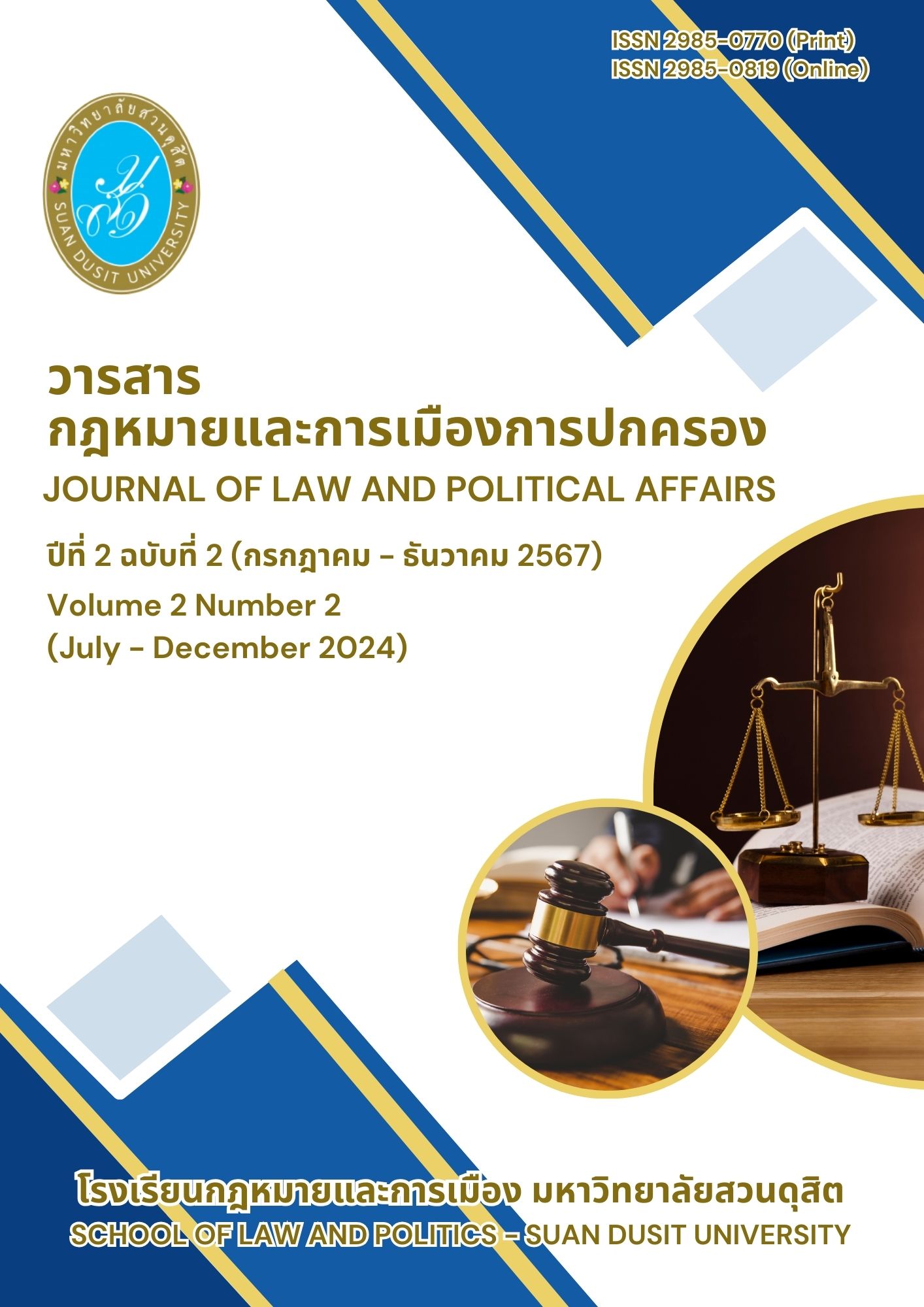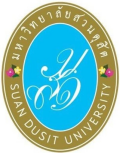The role of students in Thai politics
Keywords:
role, participation, democratic principlesAbstract
Abstract
every era Students clearly play a role in the political development of Thailand. This is evident from the change in government since 1932, which was the result of higher education reform. Since the reign of King Rama V - King Rama VII, there has been a group of Thai people who received a high level of education from Foreign countries have returned to cause a change in Thai governance from an absolute monarchy. The Raj came to be a regime in which the monarchy was under the constitution, and the leaders of that change, later on, mostly became leaders. Thai political leaders Throughout the past, Thai political leaders have always been aware of the importance of important points of study Therefore, education has been promoted and supported. tertiary level, but in a manner that will not be hostile to government For this reason, together with other causes such as political conditions, government, society, and the values of Thai society, education after 1932 onwards has little role in political development in the true sense. There will be some, it's more theoretical. In addition, in the past, most students Yai behaves in such a way that he does not pay much attention to politics. Exposure to news and knowledge, attitudes, and participation in promoting democratic governance was relatively low. However, after 1971, some groups of students were interested in participating in politics. has expressed a desire to participate in politics coupled with pressure from political events Internal and external politics that affect education cause students who are interested in Some politics has become a machine It was important to demand participation in politics and governance of the country by resisting the dictatorship at that time. and supported There was a lot of support from the students themselves as well as the general public, making it possible to make changes. The great political situation occurred on October 14, 1973 until the present, 2020 - 2024. The nature of those movements It began to become clear again as a result of being deprived. Too many rights and freedoms. However, political awareness of students Students are still in a limited circle and it is an awakening in the form of a reaction to the dictatorial forces that are oppressing them. for a longer time than the awareness that followed a systematic political training process because student groups before and after 14 October 1973 still modeled the concentration of power with groups of individuals rather than calculations. Taking into account democratic principles, student leaders themselves after Spread democracy There is a tendency to abandon the democratic process and turn to "mass power" as a tool to decide problems. In this sense, it can be said that Thai education from 1932 until the present Therefore, it does not play much of a role in the political development of Thailand.
References
กฤษชพลณ์ บุญครอง และ ศิวัช ศรีโภคางกุล. (2562). นักศึกษามหาวิทยาลัยขอนแก่นกับความตื่นตัวทางการเมือง. วารสารด้านการบริหารรัฐกิจและการเมือง, 8(3), 94-119.
ชาญวิทย์ รักษ์กุลชน. (2556). การมีส่วนร่วมทางการเมืองต่อการพัฒนาประชาธิปไตยของนักศึกษา กรณีศึกษา เหตุการณ์ 14 ตุลาคม 2516. กรุงเทพฯ: สำนักงานศาลรัฐธรรมนูญ
ประภาส ปิ่นตบแต่ง. (2552). กรอบการวิเคราะห์การเมืองแบบทฤษฎีขบวนการทางสังคมเชียงใหม่. มูลนิธิไฮน์ริคเบิลล์: สำนักงานภูมิภาคเอเชียตะวันออกเฉียงใต้
ศูนย์ทนายความเพื่อสิทธิมนุษยชน. (2558). ประมวลสถานการณ์ขบวนการประชาธิปไตยใหม่ 24 – 27 มิถุนายน 2558. สืบค้นเมื่อ 24 กุมภาพันธ์ 2567 จาก https://tlhr2014.wordpress.com/wp-content/ uploads/2015/08/20150701_-24-27-2558.pdf
Warner, M. (2002). Publics and Counter publics. Quarterly Journal of Speech, 88(4), 413-425.
Downloads
Published
How to Cite
Issue
Section
License
Copyright (c) 2024 Journal of Law and Political Affairs

This work is licensed under a Creative Commons Attribution-NonCommercial-NoDerivatives 4.0 International License.
ลิขสิทธิ์ต้นฉบับที่ได้รับการตีพิมพ์ในวารสารกฎหมายและการเมืองการปกครอง มหาวิทยาลัยสวนดุสิต ห้ามผู้ใดนำข้อความทั้งหมดหรือบางส่วนไปพิมพ์ซ้ำ เว้นแต่จะได้รับอนุญาตอย่างเป็นลายลักษณ์อักษรจากโรงเรียนกฎหมายและการเมือง มหาวิทยาลัยสวนดุสิต นอกจากนี้ เนื้อหาที่ปรากฎในบทความเป็นความรับผิดชอบของผู้เขียน ทั้งนี้ไม่รวมความผิดพลาดอันเกิดจากเทคนิคการพิมพ์







